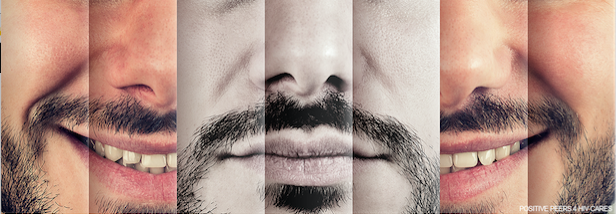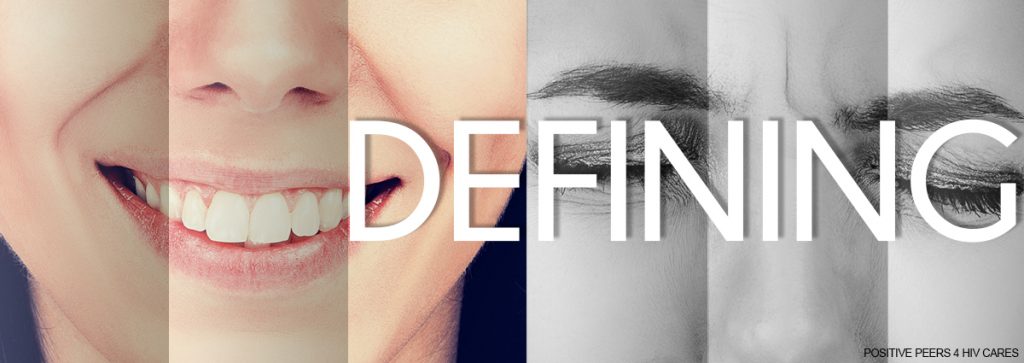
By: Jennifer McMillen Smith, LISW-S, HIV Social Worker at MetroHealth Medical Center and medically reviewed by Ann K. Avery, MD, Infectious Disease Physician at MetroHealth Medical Center
If you’re living with HIV, you already know all about stigma and how it can block people from getting the help they need. People may think HIV is untreatable or that it’s a death sentence. None of this is true, but that stigma means that people are less likely to get tested and get treatment.
The same goes for mental illness. Some people think folks living with mental illness just need to snap out of it or that they did something to cause it. There’s a big stigma around it that makes it hard for people to get help.
And when you’re already living with HIV, adding the stress of a mental illness like anxiety or depression on top of it does your immune system no good. The good part about managing mental illness, just like managing HIV, is that there is help available if you’re ready for it.
If you’re not sure if you have stigma about mental illness, take this quick quiz.

What is mental illness?
So, how do we define mental illness? The important thing to know is that it’s a medical condition, just like arthritis, diabetes, and HIV. The thing is, mental illness affects how people think and feel. There are a lot of different types of mental illness, and sometimes they can really mess with your life, your responsibilities, and your relationships.
Imagine living daily life carrying a 100-pound backpack of sadness or anxiety everywhere you go and you can’t figure out how to take it off — that’s an idea of what it’s like.
If you have a mental illness, it’s easy to feel ashamed or unworthy. People can sometimes act strangely around you, and that just makes it worse.
It’s possible to feel better, though. That starts with your attitude about mental illness. Think of it as just another health problem you can treat with medication, therapy, and support — like diabetes, arthritis, or high blood pressure (or HIV, for that matter). Science has shown that mental illness can come from chemical imbalances in the brain, genetics, or suffering through a stressful, traumatic event.
Come join our private, stigma-free, supportive community.
Health management tools with medication & appointment reminders.
Social networking in a community conversation & private chats.
Symptoms of mental illness
Remember, it’s natural to feel sad after a breakup or anxiety if you’re worried about losing your job. Mental illness is more like an extreme version of these issues, or an inability to get back into a happy, calm, or satisfied place even after some time passes.
These are some common symptoms of mental illness:
- Avoiding social interactions and losing interest in things you used to love doing.
- Having trouble functioning in school, work, or social activities.
- Struggling to concentrate and think clearly.
- Saying things that don’t make sense.
- Suddenly becoming sensitive to light, touch, sounds, and smells.
- Feeling disjointed and disconnected from your surroundings, like you’re in a dream or a movie.
- Thinking irrational things, such as having a superpower or being able to influence events.
- Fearing other people or becoming extremely suspicious of them.
- Going through major changes in sleeping, appetite, or personal care.
- Experiencing sudden or dramatic mood swings. (Source: org)
This list is just a small sample of the kinds of things people experience with mental illness. For instance, addiction (to drugs, sex, gambling, etc.) is also a mental illness. (The good news is that there is help available for those issues too.)
It’s extremely common for people living with HIV to go through depression. So common, in fact, that at least once a year when you visit your HIV doctor at MetroHealth, you’ll be asked 2 screening questions about depression. If you answer yes to one of them, you’ll be given a screening called a PHQ9. It’s essentially 9 questions that predict if you have depression and gives clues about how severe (or not) it might be and how your doctor should approach it. Your job is to just be honest and fill it out to the best of your ability.

How to get help with mental illness
If you feel like hurting yourself or anybody else, go to the nearest hospital emergency room and seek treatment immediately. There may be meds and counselors that can calm you down and reduce destructive thoughts.
If you think you might be struggling with mental illness, here is some advice:
- Talk to your social worker or doctor if you feel like you’re having some of the symptoms we mentioned above.
- Ask for a referral to a counselor or psychiatrist. Counselors can teach you ways to rearrange your thinking to cope with damaging thoughts. Psychiatrists can give you an accurate diagnosis and prescribe medications that will help.
- Find a support group. Your HIV counselor can help you contact a support group with people who share your challenges. It might help to find a group of people with your specific symptoms or diagnosis.
- Check out some other resources:
The medications that help treat mental illness symptoms may have side effects — make sure you talk them over with your doctor. If the side effects are too nasty for you, your doctor may be able to find substitutes. Some side effects fade away once the medications have been in your system for a while — it all depends on how your body reacts. It’s important to know that medicines for things like depression take awhile to show results. You’ll need to be on the medicine for 4-6 weeks before you can tell if it’s making a difference. Everybody is different, so sometimes doctors have to just take a trial and error approach to choosing medications. Give it time before you ask for something else.

We know it’s not always easy, but keep trying
Life with mental illness can be a struggle. Sometimes, it’ll feel like your whole life consists of putting one foot in front of the other and just making it until tomorrow.
But if you stick with your treatments, you can find ways to overcome the dark feelings and learn to experience more joy, excitement, and accomplishment in your life without the dark shadow following you around. On another note, improving your moods can also help your HIV meds do their jobs more effectively.
So, don’t give up, no matter how tough things get. Overcoming the dark nights will help you appreciate the sunny days even more when they arrive.
Related Blogs:


